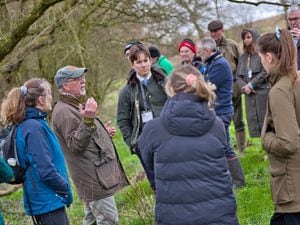Welcome shift in attitude on rural homes
We have welcomed the news of increased opportunities to build much-needed homes in rural areas of England, as part of the Government’s draft revised National Planning Policy Framework.

The Westminster Government has published a consultation on the draft revised text of the National Planning Policy Framework (NPPF) and in that draft the specific needs of those in the countryside have been recognised. The framework contains a number of changes that will see increased opportunities for building much-needed homes for village communities and creating opportunities for rural businesses to grow and change.
In the right circumstances, land outside of existing settlements can play an important role in meeting the housing and business needs of a rural community. This draft policy framework proves that Government is showing a marked shift in its attitude to how planning authorities should treat development opportunities outside of towns and villages and we welcome that shift.
The biggest significant change for rural areas is the proposed flexibility to allow the building of new homes within existing farms to help farmers retire and free up farmhouses to get the next generation into the industry. The draft text contains a new exception from restrictions on building in open countryside for those taking majority control of a farm business.
The Government has recognised this simple change will help to smooth the notoriously difficult process of farm succession in time for an expected increase in retirement, driven by Brexit.
Also within the proposals is the use of rural exception sites which are now considered as appropriate development within the green belt. These small areas of land, which are not normally used for housing, but where affordable homes can be built for local people, give all rural communities the ability to build the homes that are desperately needed while keeping them affordable in perpetuity.
The Government has also proposed the use of entry level exception sites as another means to provide affordable homes for those who live and work in the countryside that struggle to get their foot on the housing ladder.
I’m sure these proposed changes will be welcomed by our rural clients who have called for these changes for a significant number of years. Our clients can rest assured that Roger Parry & Partners will do all it can to help this draft text become policy.
Richard Corbett, Partner with Roger Parry & Partners





